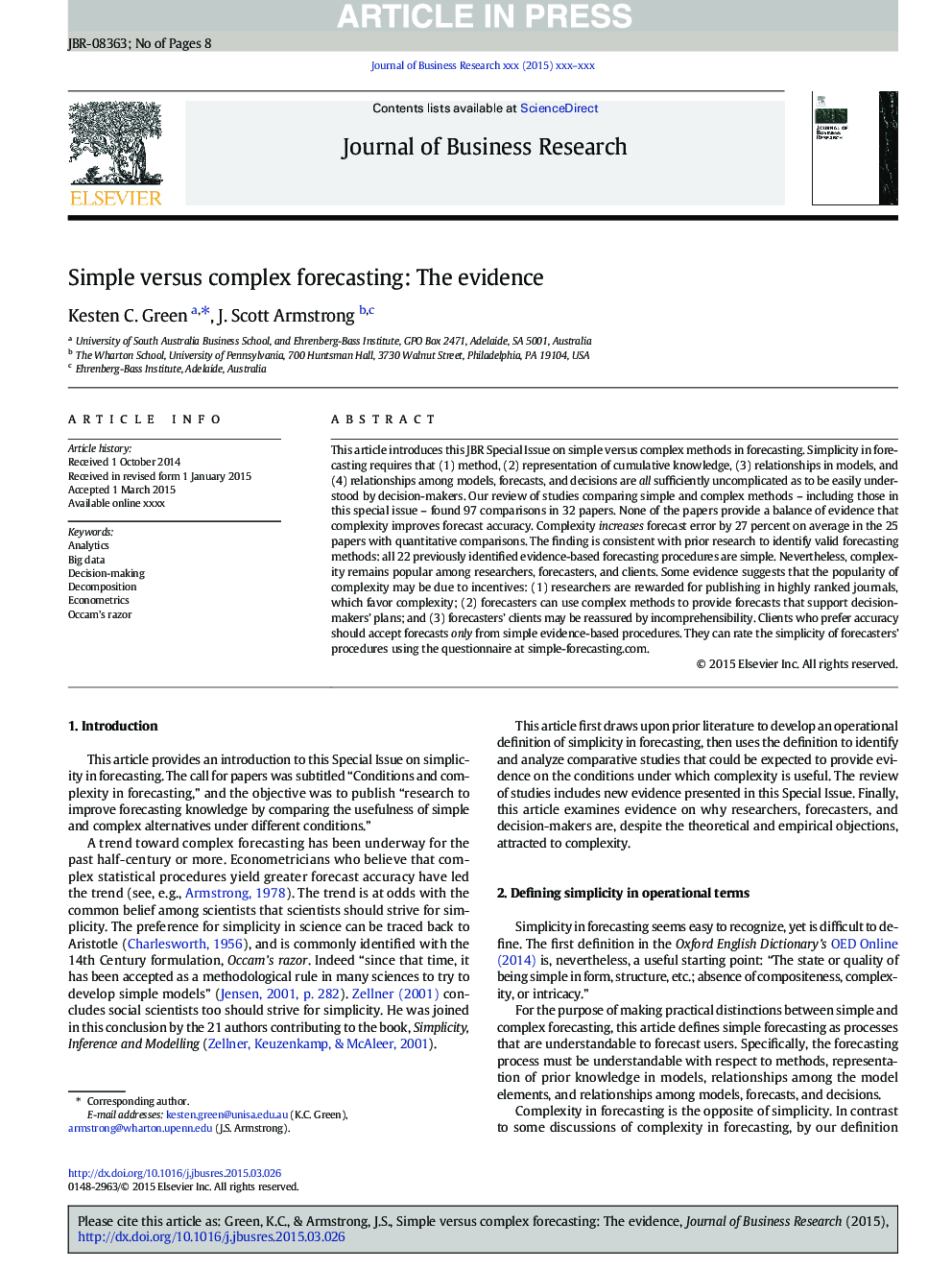| Article ID | Journal | Published Year | Pages | File Type |
|---|---|---|---|---|
| 10492975 | Journal of Business Research | 2015 | 8 Pages |
Abstract
This article introduces this JBR Special Issue on simple versus complex methods in forecasting. Simplicity in forecasting requires that (1) method, (2) representation of cumulative knowledge, (3) relationships in models, and (4) relationships among models, forecasts, and decisions are all sufficiently uncomplicated as to be easily understood by decision-makers. Our review of studies comparing simple and complex methods - including those in this special issue - found 97 comparisons in 32 papers. None of the papers provide a balance of evidence that complexity improves forecast accuracy. Complexity increases forecast error by 27 percent on average in the 25 papers with quantitative comparisons. The finding is consistent with prior research to identify valid forecasting methods: all 22 previously identified evidence-based forecasting procedures are simple. Nevertheless, complexity remains popular among researchers, forecasters, and clients. Some evidence suggests that the popularity of complexity may be due to incentives: (1) researchers are rewarded for publishing in highly ranked journals, which favor complexity; (2) forecasters can use complex methods to provide forecasts that support decision-makers' plans; and (3) forecasters' clients may be reassured by incomprehensibility. Clients who prefer accuracy should accept forecasts only from simple evidence-based procedures. They can rate the simplicity of forecasters' procedures using the questionnaire at simple-forecasting.com.
Related Topics
Social Sciences and Humanities
Business, Management and Accounting
Business and International Management
Authors
Kesten C. Green, J. Scott Armstrong,
